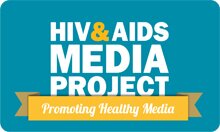Zackie Achmat
As the leader of the
Treatment Action Campaign (TAC), Zackie Achmat has become synonymous with the fight for anti-retroviral treatment. Achmat, a former anti-apartheid activist and an active gay rights campaigner, tested positive for HIV in the early 1990s, prompting him to focus on HIV/AIDS activism. In December 1998, Achmat co-founded the TAC, whose main objective was to campaign for affordable anti-retroviral treatment for HIV-positive people in South Africa. The TAC fights on two fronts — taking on both the South African government because of its slow response to the epidemic and the international pharmaceutical companies that charge high prices for anti-retroviral drugs. The TAC successfully forced the government to make mother-to-child-transmission prevention treatment available in the public sector through a high court decision. It also forced government's hand in providing public sector anti-retroviral treatment by leaking an internal government report that showed treatment would be cost-effective as it would reduce public hospitalisation costs. Achmat became famous for not accepting anti-retroviral treatment until all South Africans had access to it — even declining a request from Former President Nelson Mandela to return to treatment. However, he resumed treatment in late-2003, shortly before the South African government announced a public sector anti-retroviral programme would be introduced. Achmat was selected as one of
Time Europe's “Heroes of 2003”. He was winner of the inaugural
Nelson Mandela Award for Health and Human Rights in 2003. Together with the TAC, he was nominated for a Nobel Peace Prize in 2003. Continuing his outspoken approach, Achmat is challenging government to provide better treatment for tuberculosis (TB) and, with other activists, launched a global campaign in November 2008 to promote action against TB.






